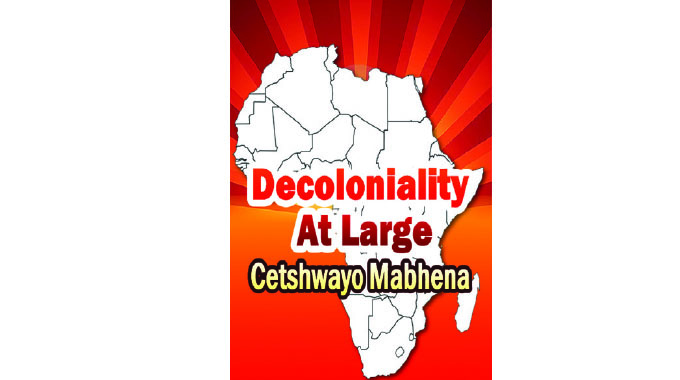
The Sunday News

When one drops the name of Chinualumogu Albert Achebe, simplified as Chinua Achebe, what crosses the minds of the multitudes is his classic of 1958, Things Fall Apart.
The world over, readers are enchanted by the beauty and pulsating narrative of Achebe’s rendition in that fictive narrative of a Nigerian village’s encounter with colonial conquest by the British Empire. Achebe the story weaver and teller is a subject of enchantment and adoration at a global scale.
It is Achebe the philosopher and historian that remains erect in the public domain but remains largely ignored as readers and students run away with the beauty of his enchanting fictive imagination and description. Perhaps at his best as a historian and philosopher of liberation, Achebe is found in his essay: “Impediments to Dialogue between North and South,” which he first presented as a keynote address to the Horizonte Festival in West Berlin on 22 June 1979. In that essay, Achebe mobilises his historical and philosophical sensibility to ruminate on the possibility of a world where different civilisations and cultures would meet in dialogue, communication and exchange, and not war and conquest of one by another.
That Achebe, the historian and philosopher, an imaginist of a liberated world that is removed from the paradigm of war and conquest remains lonely ignored as we all remain under the spell of Achebe the storyteller and entertainer, I observe.
The clash of civilisation, conquest and war
Chinua Achebe thought, spoke and wrote from Nigeria, in Africa. His locus of enunciation was from the underside and the dark side of western modernity, conquest and colonisation and therefore he could only imagine liberation and yearn for a dialogue of civilisations and not the conquest, war and colonisation that his people and their country and continent had suffered only too much in a lifetime.
On the other hand, located in the United States of America, in the apex of Empire and the lighter side of western modernity and power, Samuel Phillips Huntington could only think, speak and write in celebration of conquest and war because himself and his people had not known being violated and dominated like the Igbo people of Nigeria and other Africans, the Asians and Latin Americans of the Global South. Huntington’s locus of enunciation was power, conquest, the paradigm of war and domination of others. He thought, spoke and wrote from the pinnacle of privilege.
In the essay of 1993: “The Class of Civilisations,” published in the journal: Foreign Affairs, Huntington painted the picture of a world where the Western civilisation would continue to clash with, conquer and dominate other civilisations of the world, seek, find and keep its might by force.
America and the West, Huntington wrote, were supposed to watch and manage “Muslim militancy, Chinese assertiveness” and African resistance in order to secure “western universalism” and western dominion over the planet.
He prayed for a world order that was to be guided by a necessary and inevitable “clash of civilisations.” Civilisational politics and war, in the thought of Huntington and many other spokespersons of Empire is supposed to be the real politics of the world.
That essay of 1993 was later followed by a full book of 1996 where Huntington sought to amplify, magnify and emphasise the arguments he made in the essay. In that book and the essay before it, Huntington presented a true manifesto of western domination of the world until perpetuity.
A reader might be tempted to observe and believe that I am exaggerating the power and influence of one American social scientist in taking Huntington’s thoughts too seriously.
But the truth is that I am only recognising the role of one of the many powerful but evil spokespersons of Empire and conquest. Spokespersons matter. They project and reflect the very political and economic pulse of the Empire that they speak for. Huntington was a professor at Harvard University, a chairperson of the Harvard Academy of International and Area Studies, and the director of Security Planning for the National Security Council in the Carter administration.
He was also the founder of the journal: Foreign Policy. He achieved fame and infamy as the American Political Science Association president. In other words he was a thinker and author that had authority and had the ear of the American government. He, as a scholar and advisor to the State, contributed to shape of American foreign policy and its now well-known disasters in the world. Empire listens to its thinkers and spokespersons. We only see soldiers and drones of Empire all over the world; we do not see the thinkers that are the real warriors of Empire in their closets in the universities of the West.
The loneliness of Chinua Achebe
When Louis Althusser wrote of “Machiavelli’s Solitude” in 1998 he meant the way Niccolo Machiavelli as a philosophers was read and surrounded by multitudes of admirers, haters and fearers, crowded by observers and onlookers and yet remained lonely and solitary because he was much misunderstood. I say the same of Achebe.
He was seen as a troublesome Igbo nationalist that was a threat. It is in that way that like Althusser’s Machiavelli, Chinua Achebe became lonely in a crowd of world extents that surrounded him. His millions of readers read him for entertainment and fun and the governments of Africa that were supposed to give him an ear ignored him.
Paradoxically, the exiled Achebe died on 21 March 2013 in Boston, Massachusets, Huntington’s home town.
Cetshwayo Zindabazezwe Mabhena writes from Gezina, Pretoria, in South Africa. Contacts: [email protected].



